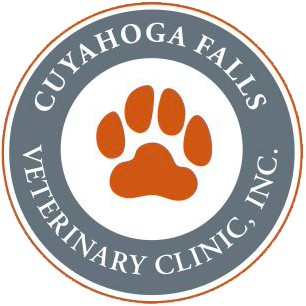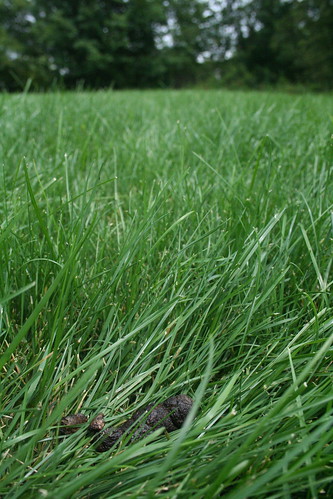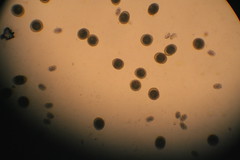|
You may have noticed on your reminder postcard a line item that reads “FECAL.” Nobody wants to spend more time than is absolutely necessary thinking about FECAL-anything, but just for a minute, let’s spend a moment thinking about it.
Because of the lifestyle of dogs and cats, it is not unusual for them to encounter intestinal parasites. Many simply refer to intestinal parasites as “worms.” Some parasites cause minor irritations while others can lead to life-threatening illnesses. What’s more, some of these parasites can be shared with you! So it’s important that we work to keep our pets free of parasites.
How would you know if your pet has acquired intestinal parasites? That’s where the FECAL comes in. The eggs from some parasites and spores from others are shed in the stool of cats and dogs. Preparing the stool sample in particular way and then examining it underneath a microscope (lower photo) allows us to see if any of the eggs or spores are present. In this example, the particular sample shows that the dog has both roundworms and hookworms.
These little eggs are viable in the environment for long periods of time, so a relatively fresh sample is sufficient to evaluate. If we find evidence of parasites, appropriate treatment can be given, and potential exposure to both pets and people can be minimized.
Thankfully, our heartworm preventives are helpful with preventing intestinal parasite infestations in the first place, but efficacy must always be tested, particularly when we’re talking about which animals and people can share, a.k.a. zoonotic diseases.
Keeping our pets intestinal parasite free is for their own good… and ours. If you are not certain your pet is being protected against parasites, give us a call at 330-929-3223 and we can talk about how best to keep your pet healthy.



